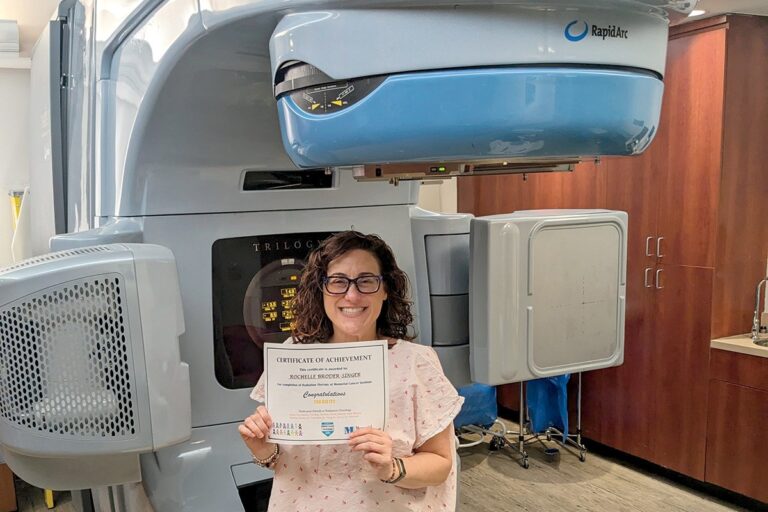When Rochelle Brodersinger was told she had breast cancer, she was furious. She wasn’t scared or sad, as she would later learn, because she knew that all the medical appointments, meetings, and driving before and after cancer surgery would take up a lot of her time and energy. , she was annoyed.
“Everyone reacts differently. Some people are paralyzed with fear,” she says. “I just went into planning mode. What needs to happen, what’s going to happen next? Let’s make a list and check it off.”
She will soon experience sadness and fear. But along the way, she learned some things that surprised her and that she thinks will be helpful to anyone diagnosed with cancer.
Brodersinger, a Miami-based freelance writer and editor, previously wrote for FLORIDA TREND. She currently writes a series of monthly articles for the Sylvester Comprehensive Cancer Center, part of the University of Miami Health System. The article, posted online at news.umiamihealth.org, is about her experience as a breast cancer survivor.
Her first article was titled “5 Things I Learned About Cancer Since My Diagnosis,” and the first thing she learned was to get a second opinion.
“We want to make sure the diagnosis is correct,” she says. “You want to know what treatments others suggest.”
Her breast cancer was discovered early last year, she recalls, when a routine mammogram revealed “something different” from the previous year. After a biopsy confirmed cancer, she got a second opinion from a surgeon at Sylvester Cancer Center. The cancer center performed its own biopsy and the diagnosis was the same.
Her next tip: Don’t assume you know your treatment plan. The surgeon she consulted surprised her, she wrote in the article:
Within 24 hours of diagnosis, I had already decided to have a total mastectomy. The only question in my mind was whether I wanted one breast or two breasts. I was young and I thought it would be easier to recover from this major surgery now than it would be in 10 or 20 years if it happened again.
Both surgeons agreed that the standard treatment for the type and size of my cancer was a partial mastectomy (lumpectomy in medical terminology), followed by radiation therapy, with long-term survival rates at least as good as this. Imagine my shock when I was told that research showed this. A much less invasive approach.
The next lesson Broder-Singer learned is that high-quality research helps inform decision-making. As part of that process, she visited websites such as Komen.org, the University of Miami’s Physician Blog, and the National Institutes of Health’s Breast Cancer Research Brief. She found it helpful that they were written in plain, approachable language.
During treatment, she learned something else. That means always making a list of questions to ask your doctor.
We created a checklist of questions using apps on our phones, browsers, computers, and tablets. I just kept adding to it, including questions my family and friends asked me that I couldn’t answer. When meeting with each surgeon, I printed out a current copy of the checklist and asked relevant questions. Checklists are very helpful because it’s easy to forget things in a hurry.
What she learned last: Your feelings about a cancer diagnosis may be different than what others expect.
She wasn’t scared, at least not at first. she was annoyed. Now, after surgery and 16 rounds of radiation, she’s grateful. She is grateful that her cancer was discovered so early. She is grateful for her oncologist, supportive husband, and insurance.
At this point, her scar is just a small scar, and she has been taking Tamoxifen, an estrogen antagonist, for five years to minimize the chance of recurrence. Most importantly, her prognosis is good. “Every step of this journey, I have been very fortunate.”

